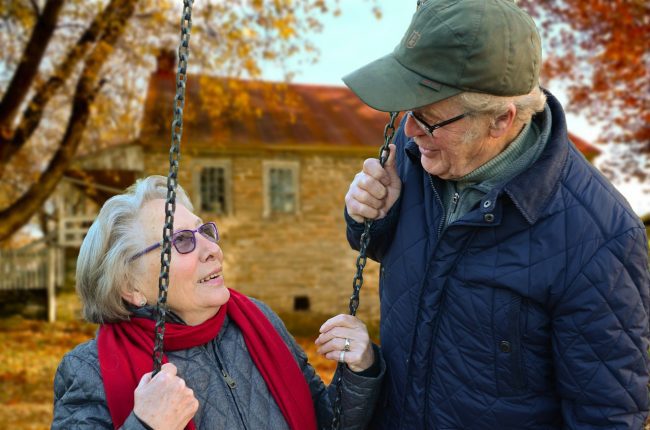
These days there are so many different options for senior living that you can be forgiven for not knowing the difference between assisted living and nursing homes. When it comes to making a choice for a family member it can seem overwhelming. To help you, here’s an explanation of the different housing options for seniors.
Aging In Place
These days, more and more seniors are making the choice to spend the rest of their lives at home, where their families grew up, where their cherished memories were created, and where their community and daily routines are a joy to them. This notion of aging in place has led to a growing trend known as the “Village Movement,” which is designed to meet the emotional and functional needs of older residents, by helping seniors stay in their communities by modifying their homes, giving aging in place advice and providing assistance when it is needed. This is a great idea for seniors who are able to take care of themselves or have family members living close by.
Independent Living
This is the general term describing any type of housing facility that is designed specifically and exclusively for seniors. This includes retirement homes, senior housing, retirement communities, and senior apartments. Whether the living facilities are condos, apartments or houses, in general, they are easier for seniors to navigate and maintain. They are ideal for seniors who are considering living in a condo upon retirement or who need a place that requires little upkeep and who need only minor assistance with daily living.
Assisted Living
Also known as congregate care, adult group home or residential care assisted living is for seniors who need help with the activities of daily living. Staff are available 24 hours each day. Depending on the level of care needed, some assisted living facilities provide apartments with a shared dining room, while others just provide rooms. There are also other common areas for socializing with other residents. McKnight Place is an example of assisted living.
Continuing Care Retirement Communities
Continuing Care Retirement Communities (CCRCs) are facilities which provide a combination of independent living, assisted living, and nursing home care all in one location. This means that seniors can stay within the same community even if their housing needs or level of care changes over time. It also allows spouses to stay close to each other even if they have different requirements.
Nursing Homes
This is the highest level of senior care outside of a hospital. As well as providing help with daily living activities, they also provide a high level of medical care. Each resident’s care is supervised by a licensed physician and nursing staff are always present along with other medical professionals such as physical therapists. This is a good choice for seniors who can no longer handle their personal care and medical needs at home or in another facility.
Considering Senior Housing
When you’re assessing senior housing needs for a loved one, you need to evaluate the following issues:
- The level of care: You can’t see into the future, but if your family member has a health condition that’s going to worsen over time, it is important to consider the best way to handle this in down the road. Consider how much you are going to be able to help.
- Location: Even though your loved one may currently be fully independent, this situation could quickly change. Consider how far her home it to basic amenities such as shops and medical services. Think about how easy it is for her to navigate around her home. Also, assess how much maintenance her home and garden need.
- Social support network: Interaction with friends is very important for your loved one. Consider how easy it is for her to visit neighbors and friends and engage in social activities. If she becomes isolated in her home, she will quickly succumb to depression.
- Caregiving support: Consider her needs now and her future needs. If, as a family member, you cannot commit to caregiving, she may need a housing facility which includes a certain level of daily assistance.
- Finances: It may now be time to start working with your loved one to make a budget for senior care later on. Senior care can be expensive and costs can increase rapidly in high levels of care.
Home loans for retirees that do not need to be paid back immediately are called reverse mortgages. You can take out such a loan and still retain ownership of your home. Since you will be borrowing against the home’s value will still maintaining ownership, you will not have to agree to a set repayment plan. You can choose to pay off the reverse mortgage at any time, but if you choose not to you won’t incur any fees or penalties. The loan balance will not come up due unless you stop owning the home in question because you move elsewhere or pass away. Such home loans / reverse mortgage for seniors are popular because they can allow you easy access to money when you need it for any purpose. There are no restrictions on how the loan money must be spent.
Making decisions about senior care for a family member or loved one is not easy, and making the transition can sometimes be difficult for the ones you love. That’s why it’s important to think ahead and make plans for senior care when it is needed.



